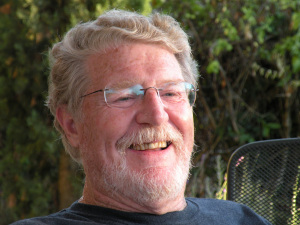Reprinted from Dispatches From The Edge
While the mainstream media focuses on losers and winners in the race between Hillary Clinton and Donald Trump, there is a largely unreported debate going on over the future course of U.S. diplomacy. Its outcome will have a profound effect on how Washington projects power -- both diplomatic and military -- in the coming decade.
The issues at stake are hardly abstract. The U.S. is currently engaged in active wars in Afghanistan, Iraq, and Syria, Yemen and Somalia. It has deployed troops on the Russian border, played push-and-shove with China in Asia, and greatly extended its military footprint on the African continent. It would not be an exaggeration to say -- as former U.S. Secretary of Defense William Perry has recently done -- that the world is a more dangerous place today than it was during darkest times of the Cold War.
Tracking the outlines of this argument is not easy, in part because the participants are not always forthcoming about what they are proposing, in part because the media oversimplifies the issues. In its broadest framework, it is "realists," represented by former National Security Advisor Henry Kissinger, Harvard's Steven Walt, and University of Chicago's John Mearsheimer, versus "humanitarian interventionists" like current UN Ambassador Samantha Power. Given that Power is a key adviser to the Obama administration on foreign policy and is likely to play a similar role if Clinton is elected, her views carry weight.
In a recent essay in the New York Review of Books, Power asks, "How is a statesman to advance his nation's interests?" She begins by hijacking the realist position that U.S. diplomacy must reflect "national interests," arguing they are indistinguishable from "moral values": what happens to people in other countries is in our "national security."
Power -- along with Clinton and former President Bill Clinton -- has been a long-time advocate of "responsibility to protect," or R2P, behind which the U.S. intervened in the Yugoslav civil war and overthrew the Muammar Gaddafi regime in Libya. Hillary Clinton has argued forcibly for applying R2P to Syria by setting up "no fly zones" to block Syrian and Russian planes from bombing insurgents and the civilians under their control.
But Power is proposing something different than humanitarian intervention. She is suggesting that the U.S. elevate R2P to the level of national security, which sounds uncomfortably like an argument for U.S. intervention in any place that doesn't emulate the American system.
What is most telling about where all this leads is her choice of examples: Russia, China, and Venezuela, all currently in Washington's crosshairs. Of these, she spends the most time on Moscow and the current crisis in Ukraine, where she accuses the Russians of weakening a "core independent norm" by supporting insurgents in Ukraine's east, "lopping off part of a neighboring country" by seizing the Crimea, and suppressing the news of Russian intervention from its own people. Were the Russian media to report on the situation in Ukraine, she writes, "many Russians might well oppose" the conflict.
(Note: You can view every article as one long page if you sign up as an Advocate Member, or higher).






